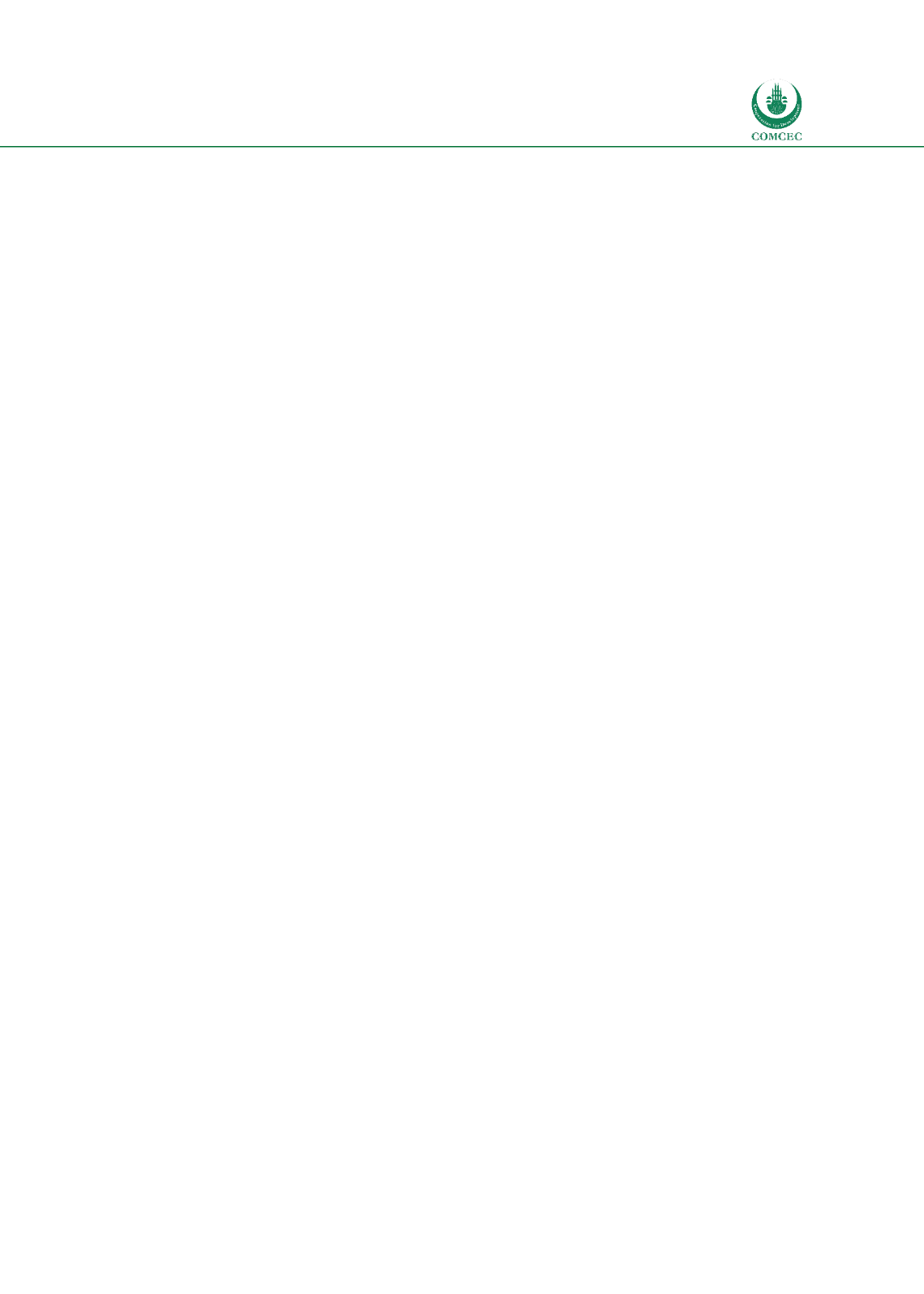

National and Global Islamic Financial Architecture:
Prolems and Possible Solutions for the OIC Member Countries
105
initial term of three years and can serve a maximum of two consecutive terms in an institution.
Moreover, no SSB member can be on the SSB for more than one competing financial institution
in Oman (CBO, 2012). The SSB is responsible for an overview of all Sharia related matters and
must submit a Sharia compliance report to the Board of Directors which is also published in
the annual report. The country requires Islamic financial institutions to use AAOIFI Sharia
governance guidelines and IFSB’s “Basic Professional Ethics and Conduct for Members of the
Shari’a Board” from IFSB’s Shari’s governance guidelines (IBRF 2012). However, the country
does not require Islamic financial institutions to use AAOIFI Sharia standards although they are
used as a reference.
Furthermore, Oman has a central national sharia board called the High Sharia Supervisory
Authority (HSSA). In this regard, a regulation was issued by the Central Bank of Oman
(Regulation NBM/REG/54/12/2013) announcing the formation of HSSA and its structure
(CBO). Among its functions is providing opinions and expert advice on Sharia matters to the
Central Bank of Oman related to Islamic banking business (CBO).
4.6.4. Liquidity Infrastructure
The issue of Liquidity risk management has been addressed in Title 9 (Liquidity Risk) of the
Islamic Banking Regulatory Framework issued by the CBO. Islamic banks/windows are
required under Central Bank of Oman instructions to have a comprehensive liquidity risk
management framework in place and liquidity planning is an important facet of this
framework. It should be explicitly incorporated during both normal and stressed times. Islamic
banks/windows should adopt a liquidity management strategy with the involvement and
periodic review of the Board of Directors and with senior management oversight.
Islamic banks/windows are required by regulations to maintain adequate liquidity to meet
their obligations using a liquidity management framework that is complaint with Sharia (IBRF,
2012). For example, Islamic banks cannot place funds with conventional banks and Islamic
widows cannot place funds with their parent bank. However, Islamic banks can receive money
from conventional banks and Islamic windows from their conventional parent as long as the
underlying contract is Sharia compliant (IBFR, 2012).
Different products can be used by Islamic banks/windows to operate in the Islamic Money
Market. For example, Mudaraba Interbank Investment (MII) and Government Investment
Issues (GII Sukuk) can be used (IBRF, 2012). Moreover, Islamic Banking Regulatory Framework
(IBRF) provides relevant guidelines on interbank Mudaraba, interbank Musharaka and
interbank wakala. While commodity murabaha is a widely used tool in the Islamic banking
industry in many countries, its use is conditional and restricted in Oman. As the Islamic
banking Sector is new in the country, the Central Bank of Oman is not offering any Sharia
compliant liquidity management products or Islamic LLOR facilities to Islamic banks that can
be used. The first OMR 250 million (USD 650 million at 3.5% cut-off yield) sovereign sukuk
issued by the Government of Oman has addressed some of the liquidity management needs of
Islamic banking institutions.
















